What is in Aveda Hair Color Ingredients?

It’s typical of women to long for change from time to time, isn’t it? One of the simple ways to change something about yourself is to use a different hair color. Hence, finding a safe hair color becomes a vital task. However, I must tell you right away that there is no such thing as a safe permanent hair color. Read on to find out why this is, so that, as we look into Aveda hair color ingredients, you will have the proper context. Specifically, we will examine some ingredients of Aveda Full Spectrum Permanent Vegan Pure Tones.
To see what place I feel Aveda hair color takes among dozens of other popular hair color brands, refer to my Permanent Hair Color Rating List E-Book. In the e-book, you will also find the ingredient analyses of Aveda Full Spectrum Permanent NN Bases and Aveda Full Spectrum Permanent Vegan Nat Series.
Aveda Hair Color Ingredients Review
To begin with, I have been researching consumer goods ingredients since 2012. That year was a turning point for me because I was expecting a baby and wanted to find safe products for him. The first product whose ingredients I actually read (instead of relying on the manufacturer’s claims) was a baby shampoo. Although I was overwhelmed with long, unpronounceable names, I made it a point to study each one of them to determine the safety of the product.
Since then, I have been studying ingredients of all sorts of products, including permanent hair color. Because hair color manufacturers are not required to post the ingredients of their products on their websites, I have had to contact them personally. That’s what I did to get the Aveda hair color ingredients, and I very much appreciate the company emailing them to me. Below is a screenshot of the Aveda Full Spectrum Permanent Vegan Pure Tones ingredients as of June 2023. The ingredients of Aveda hair color that are in bold are those that we will focus on and discuss later.
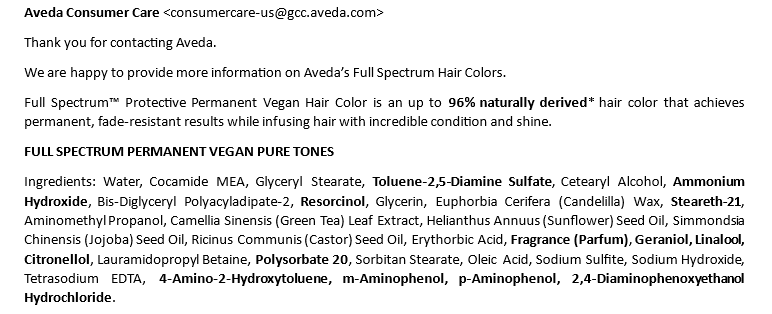
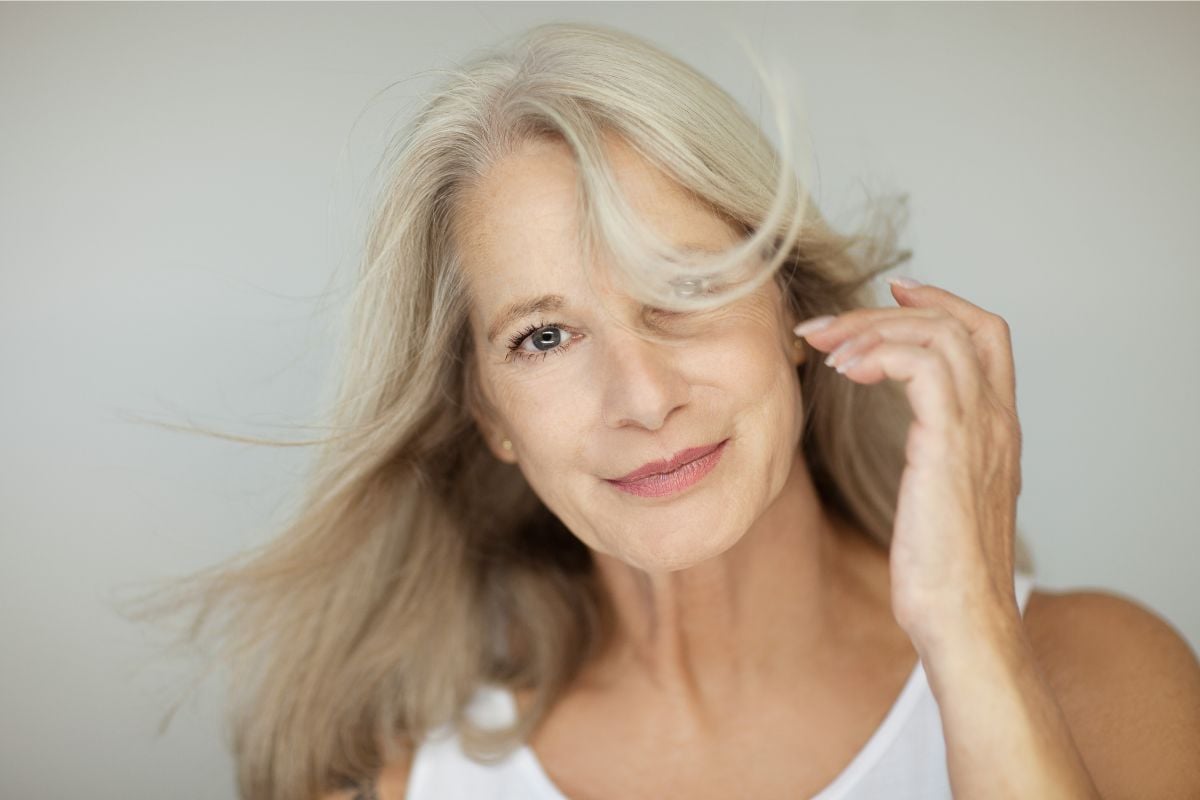
Why There Is No Non-Toxic Permanent Hair Color
Here are some ingredients that prevent a permanent hair color (including Aveda hair color) from being called “non-toxic” or “safe:”
- Hair dyes/colorants
- Hair shaft opener
- Fragrance
- Some other ingredients.
First, every permanent hair color formulation must have hair dyes to do the job of coloring. In the table in the next section, you will see which chemicals among the Aveda hair color ingredients are hair dyes. (Some examples are resorcinol, m-aminophenol, and p-aminophenol.) Most hair dyes are associated with skin allergic reactions, sensitization, and even hair loss. (If you are experiencing hair loss right now, you will benefit from my post about the most overlooked hair loss causes.)
Second, every permanent hair color must have a hair shaft opener. It is an alkaline agent that opens the hair cuticle for the dye to enter and color the hair. In the case of Aveda hair color, it is ammonium hydroxide.
Third, most permanent hair colors contain fragrance to mask the odor of the above-mentioned chemicals. The problem is that fragrances, even “natural” fragrances, consist of numerous ingredients, many of which can be allergens and even endocrine disruptors.
Fourth, every permanent hair color has other ingredients to help the formulation work. These “other” ingredients may not be safe, either (like the ethoxylated ingredients in this Aveda hair color).
Is Aveda A Clean Brand?
First of all, the answer to this question depends on your definition of “clean.” I must tell you that descriptive terminology used in the beauty industry is not regulated by the US government. Therefore, often, such words as “clean,” “natural,” “organic,” “green” etc. may be nothing but a marketing strategy.
If you look at the screenshot of the Aveda hair color ingredients again, you will see that the Full Spectrum Vegan hair color is described as “96% naturally derived.” However, regardless of the proportion of the ingredients “derived naturally,” in my opinion, the hair color cannot be “non-toxic,” “clean” or “safe” because of the ingredients we discussed in the previous section.
| Ingredient in Aveda Hair Color | Reason for Concern |
| 2,4-Diaminophenoxyethanol Hydrochloride | – hair dye – moderate sensitizer (SCCS) |
| 4-Amino-2-Hydroxytoluene | – hair dye – strong sensitizer (SCCS) |
| Ammonium Hydroxide | – alkaline hair shaft opener |
| Citronellol Geraniol Linalool | – fragrance ingredients – potential allergens – Learn more in my post about natural fragrance. |
| Fragrance (parfum) | – combination of numerous ingredients, some of which can be allergenic and endocrine disruptive – Learn more in my post about natural fragrance. |
| m-Aminophenol | – hair dye – strong sensitizer (SCCS) |
| p-Aminophenol | – hair dye – strong sensitizer (SCCS) |
| Polysorbate 20 Steareth-21 | – ethoxylated ingredients – may be contaminated with potentially carcinogenic 1,4-dioxane – Learn more in my post about hidden ingredients in cosmetics. |
| Resorcinol | – hair dye – moderate sensitizer (SCCS) – being assessed as endocrine disrupting (ECHA) |
| Toluene-2,5-Diamine Sulfate | – hair dye – extreme sensitizer (SCCS) |
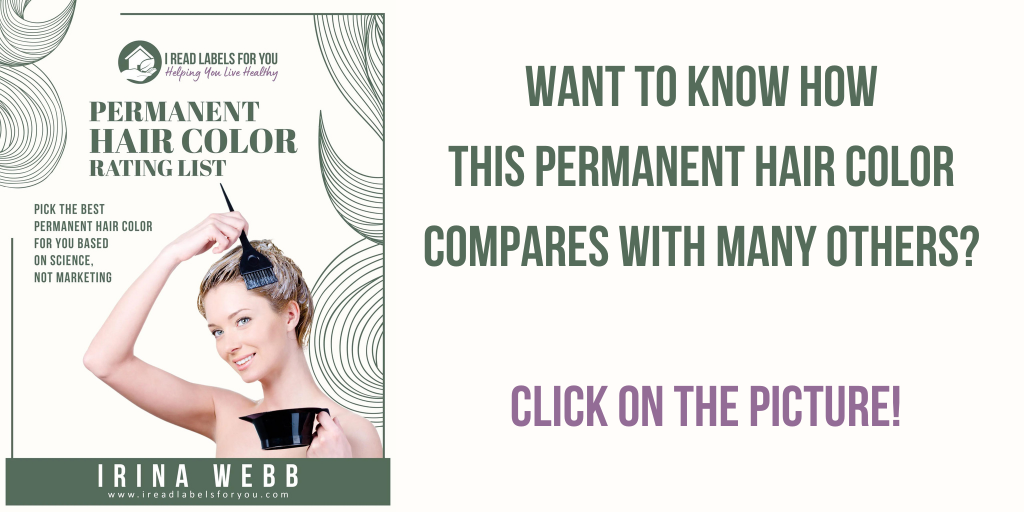
Relatively Positive Features Of Aveda Hair Color
The two relatively positive features of the Aveda hair color ingredients are:
- ammonium hydroxide, and
- no PPD.
First, a hair shaft opener, such as ammonia or ammonium hydroxide, is a compulsory agent in every permanent hair color. So, if a permanent hair color positions itself as “ammonia-free,” what ingredient does it use instead of ammonia? Commonly, it is ethanolamine that replaces ammonia in ammonia-free hair color brands. However, ethanolamine is not at all safer than ammonia.
For instance, this study found that permanent hair color with ethanolamine versus ammonia is more likely to cause hair loss. And this evidence says that ethanolamine may increase the risk of birth defects. (If you are pregnant, consider reading my helpful list of chemicals to avoid during pregnancy.)
So, in my opinion, ammonium hydroxide is a relatively better choice than ethanolamine because the latter seems to be more harmful.
Second, there is no PPD among the Aveda hair color ingredients. To clarify, the European Union Scientific Committee on Consumer Safety (SCCS) deems p-phenylenediamine (PPD) to be an extreme sensitizer. A sensitizer is a chemical that may cause an allergic reaction in a person after several uses.
However, although Aveda hair color is PPD-free, it uses another ingredient instead, namely toluene-2,5-diamine sulfate (TDS). While they are both extreme sensitizers, PPD is more likely to cause an allergic reaction than TDS (source and source). Hence, in my opinion, the use of TDS is some improvement over the use of PPD.
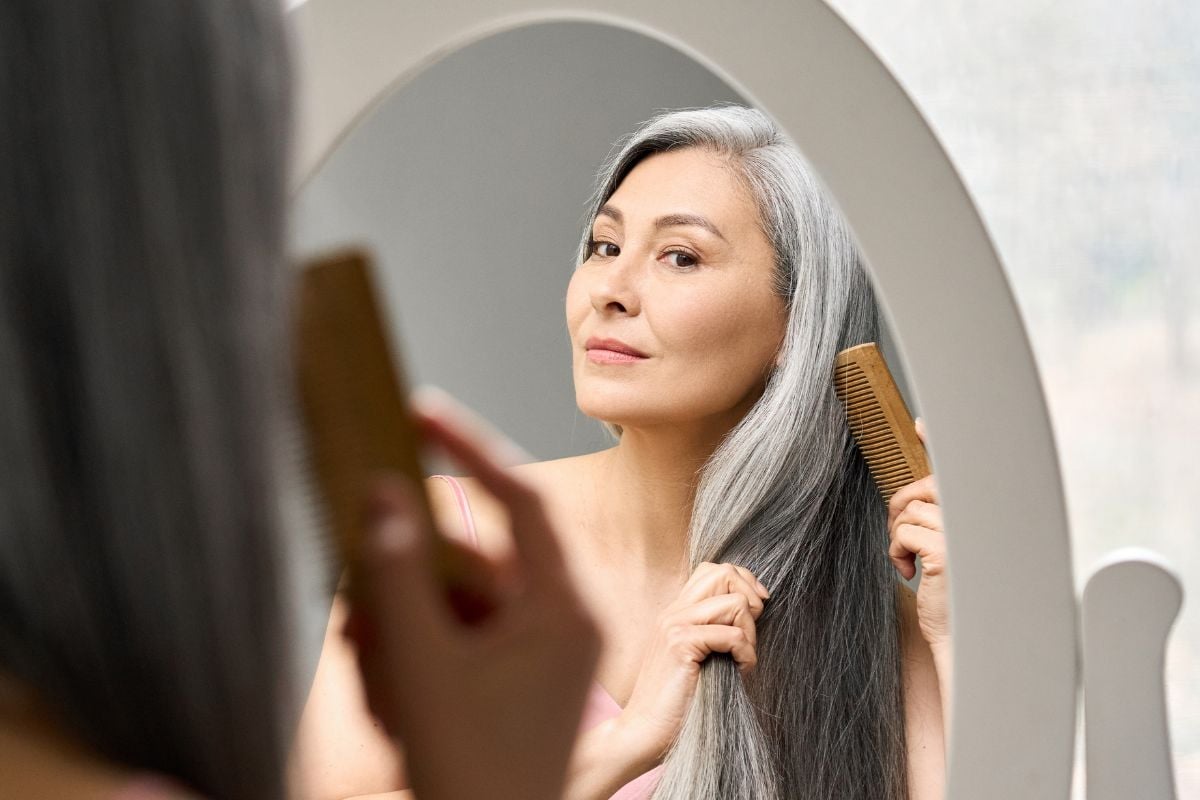
How Much Do Ingredients Derived From Plants Matter In A Permanent Hair Color?
Among the Aveda hair color ingredients, you can see several ingredients derived from seeds and leaves, such as:
- Camellia Sinensis (Green Tea) Leaf Extract
- Helianthus Annuus (Sunflower) Seed Oil
- Simmondsia Chinensis (Jojoba) Seed Oil, and
- Ricinus Communis (Castor) Seed Oil.
However, the presence of these plant-based ingredients in Aveda hair color does not change the fact that it contains chemical hair dyes. It is hair dyes that can cause allergic reactions and are also associated with an increased risk of cancer. When you have an allergic reaction to one of the hair colorants, how important is it to you that there are ingredients derived from seeds in your hair color?
Additionally, it is not clear how helpful natural oils and herbal extracts are in permanent hair coloring products. The latter damage hair by design because of the alkaline agent that strips the hair of its natural color and allows the new color to penetrate the hair. Every permanent hair color, including Aveda hair color, must have this agent. Besides, I haven’t found any studies on the healing powers of tiny amounts of oils and extracts, especially in the presence of harsh alkaline chemicals and hair dyes.
Summary Of The Aveda Hair Color Ingredients Review
The Ingredients Of Any Permanent Hair Color May Affect Both Your Hair And Your General Health In Many Harmful Ways.
In conclusion, I reiterate that, by definition, there is no completely safe permanent hair color. It is because chemical hair color ingredients must include an alkaline agent to open your hair shaft and colorants (hair dyes). Both may cause severe skin reactions and hair loss, to name a few.
The alkaline agent used in Aveda hair color is ammonium hydroxide, which seems a better choice than ethanolamine. Yet, an alkaline agent is an alkaline agent and is damaging to your hair anyway. As for hair dyes among the Aveda hair color ingredients, there are moderate, strong, and even an extreme sensitizer, specifically, toluene-2,5-diamine sulfate (TDS). On the bright side, Aveda does not use phenylenediamine (PPD), another extreme sensitizer but more harmful than TDS.
Personally, I encourage you to do what I did – avoid using permanent hair color and embrace the beauty of grey hair. However, if you do not want to give up coloring your hair, I get it and that’s why I created the Permanent Hair Color Rating List e-book. This popular e-book will help you find a color brand that better suits your health condition, risk tolerance, and convenience.
Lastly, browse my shop for non-toxic products, including plant-based hair colors. Also, check out my services if you need help with healthy living or understanding a product’s ingredients.
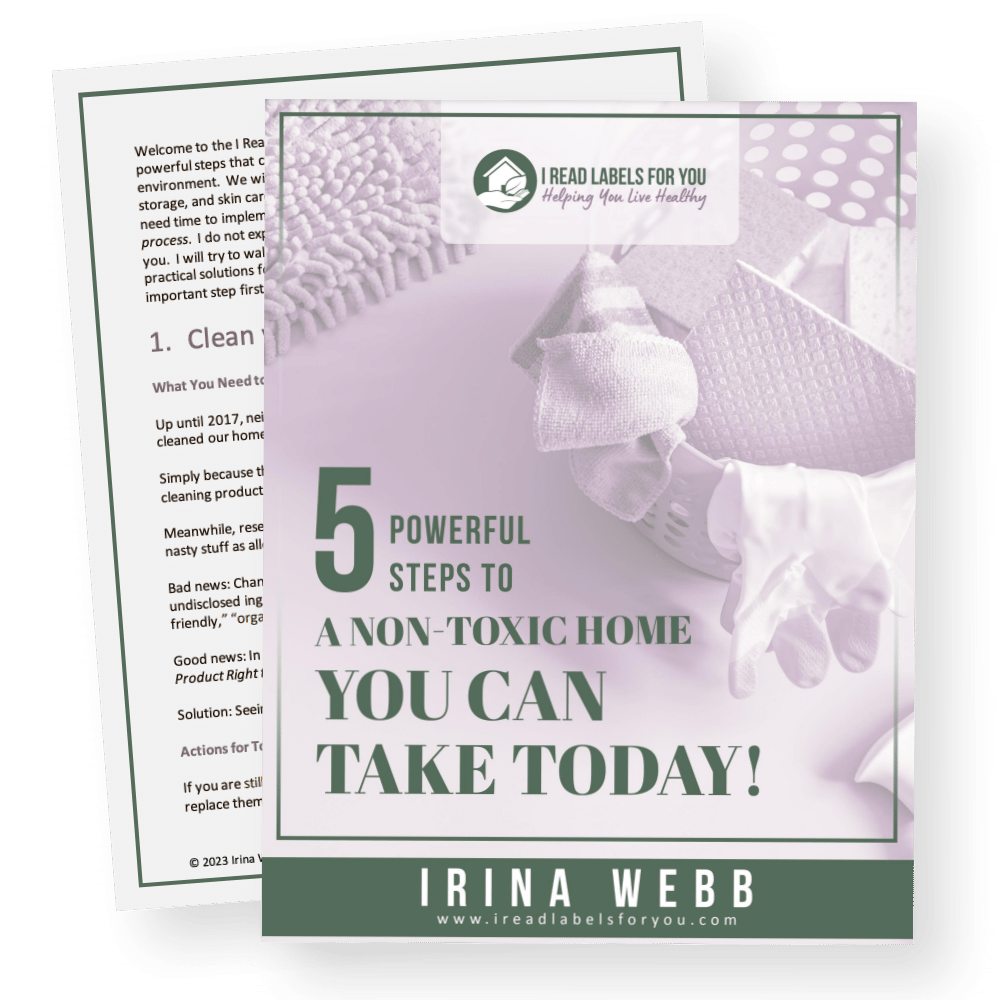
Download The Free Guide!
5 Powerful Steps To A Non-Toxic Home
Join our informed consumer community and get our free guide the “5 Powerful Steps To A Non-Toxic Home”.

 Written by
Written by  Health-related claims have been reviewed by
Health-related claims have been reviewed by 
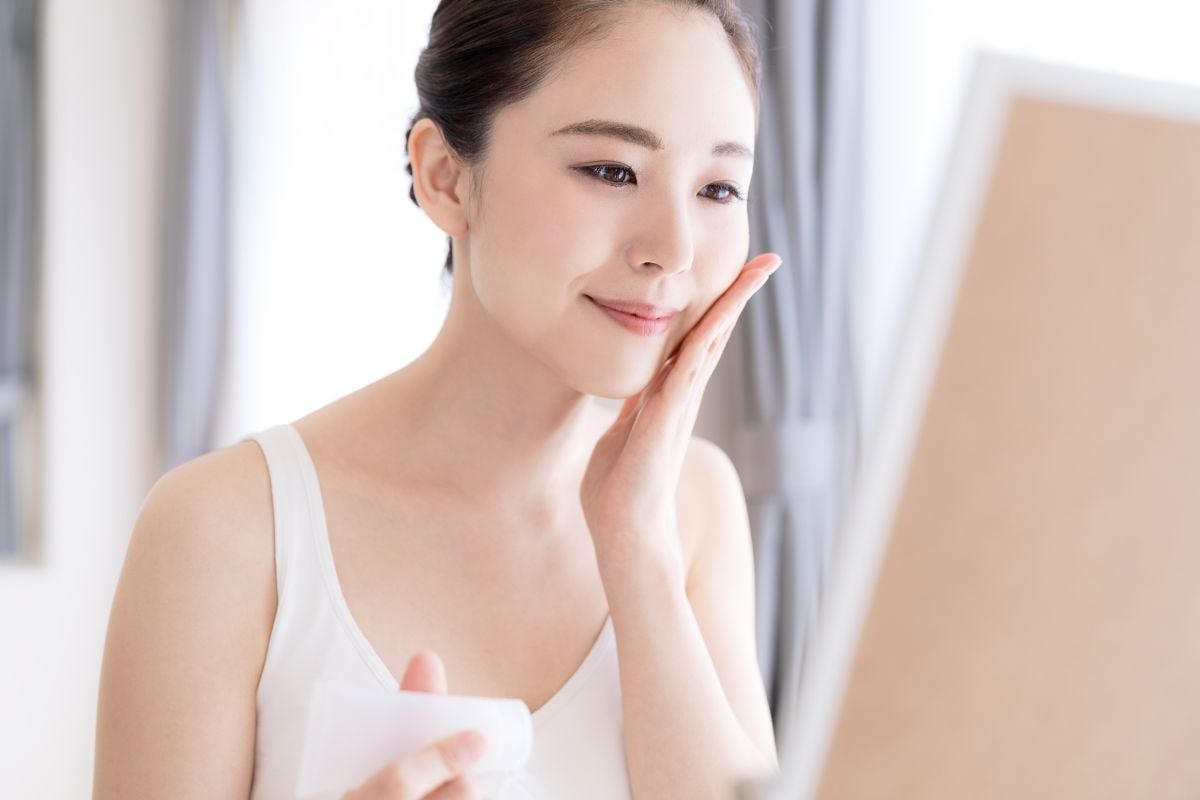

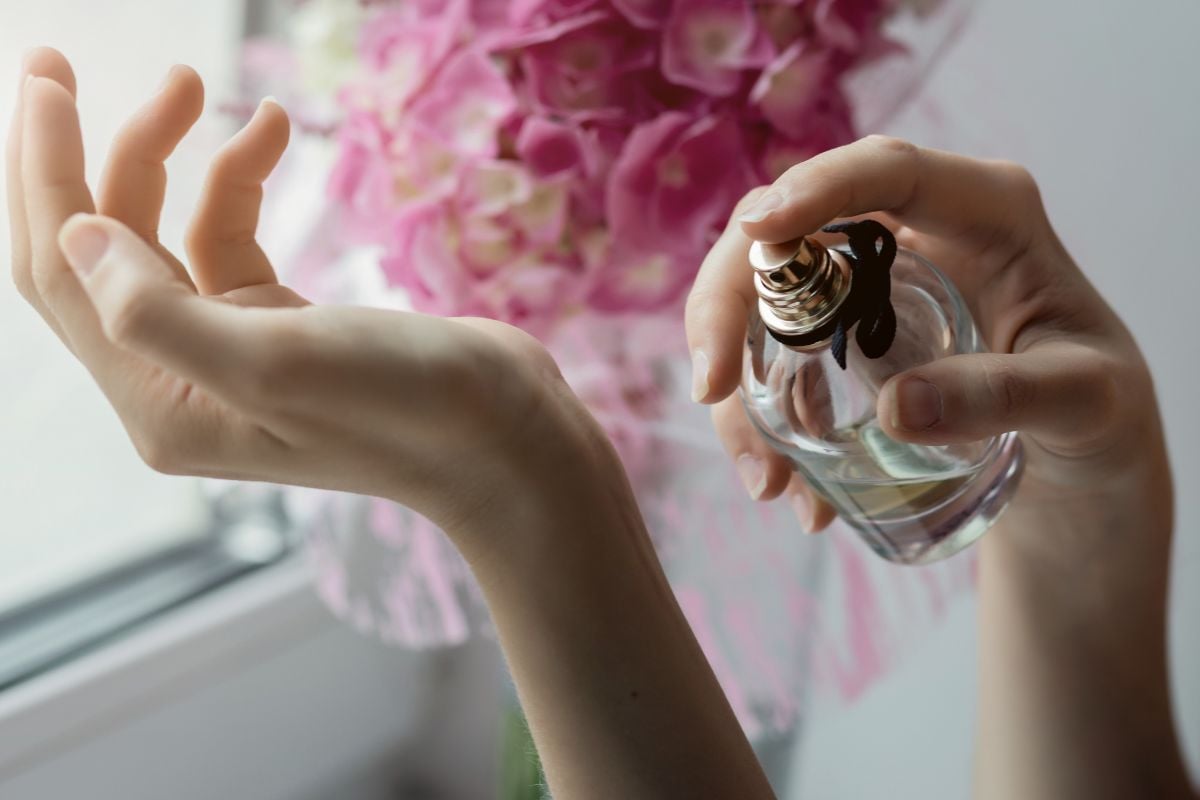
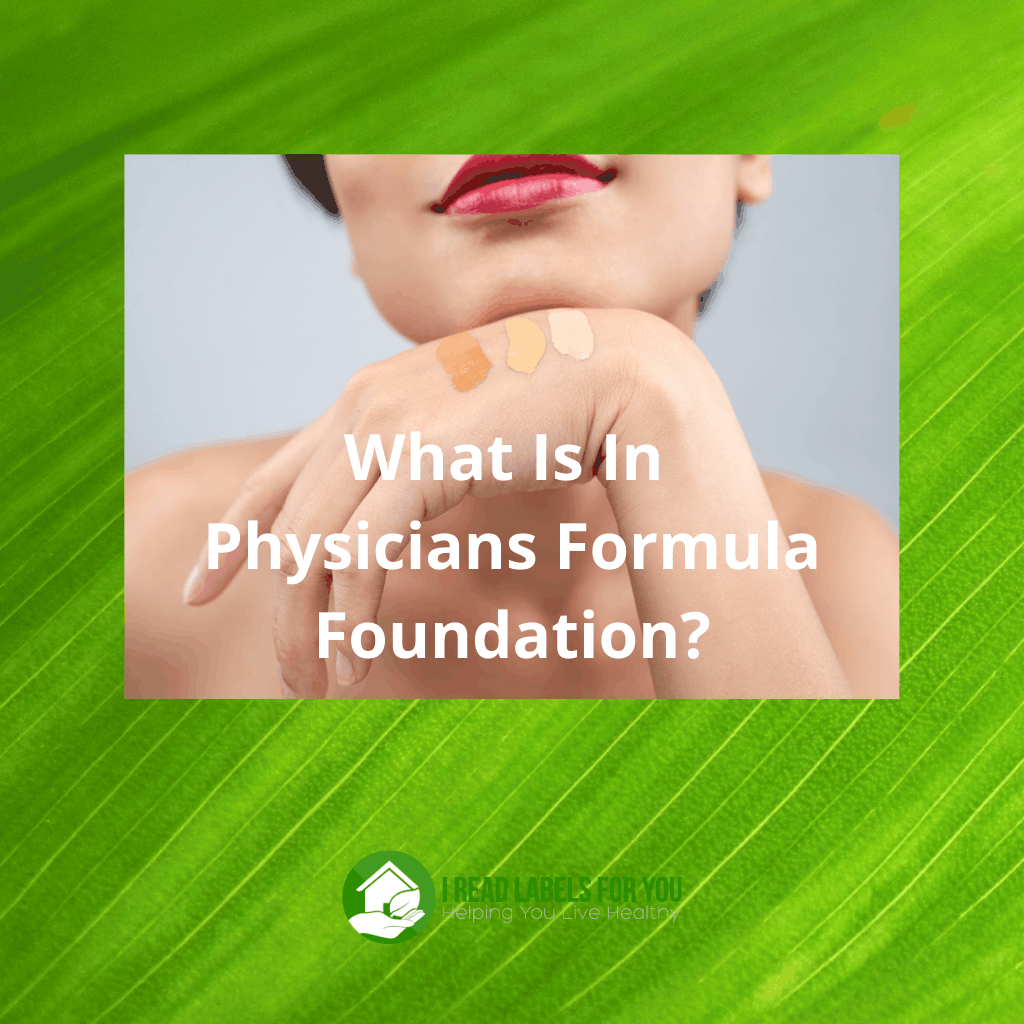
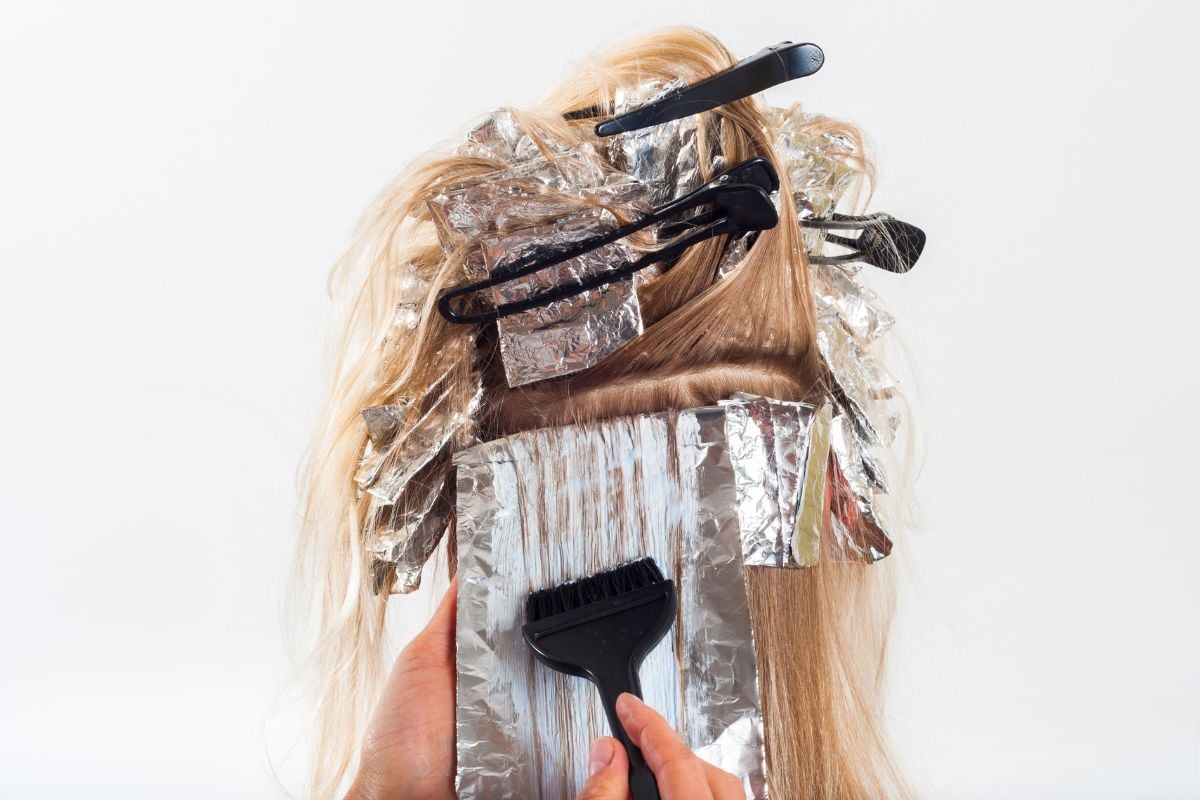
I’m wondering about Aveda Semi-Permanent color since that is what I have been using. Is that any safer?
Hi Molly! Thank you for reaching out to I Read Labels For You! Please follow the instructions on how to get an email product review here: https://ireadlabelsforyou.com/pick-brain-product/
Hi Irina,
I just wanted to thank you for this extremely informative post and comment thread. You have most certainly done the work for us and I greatly appreciate your time and insight.
Hi Misti! Thank you for your kind feedback! We most certainly appreciate it and are happy to help!
Hello,
I dyed my hair for about 15 years never had an issue. About a year ago I went to a new salon and I noticed 2-3 days after my hair was dyed, I developed itchiness and my lympthnodes behind my ear was raised and very tender. I went to a dermogolist for an allergy test and he told me I was not allergic to PPD but said I have an allergy to Nickle.
The first Salon I went to used Walla and the new salon I went to used Aveda. Do you know what I should do? Are their any dyes that don’t use nickle? I thought aveda (brown) dyes don’t contain nickle? I’m also worried it will get worse….
Any help would be grately appreciated.
Thanks
Hi Nan! Thank you for reaching out to I Read Labels for You! We are sorry to hear about what you are going through! The important thing to understand here is that nickel is not an ingredient, it is a contaminant, i.e., impurity. There is no way to tell whether a product has it unless you lab test for nickel the very product you are going to use. Besides, nickel can be practically anywhere, including food. Has your doctor told you what food you can and cannot eat then?
I am with so many of you, looking for a safe hair color, but frustrated with how orange my grays are after henna. I started mixing henna with indigo powder and I now get a really nice, natural brown. Probably will just let my hair go gray eventually. Can’t take the roots every 2 weeks.
Hi
I am surprised that no one has mentioned Goldwell Elumen . I am allergic to coal tar, I.e. PPD or TDS and my dermatologist recommended this brand. It is a bit opaque , and you have to apply it a few times for coverage, but it makes your hair very shiny and does not dry it out. There are many reviews of the product. I think it is worth taking a look at.
Thank you for your comment, Liz! Goldwell Elumen takes a favorable position in our updated Permanent Hair Color Rating List e-book: https://ireadlabelsforyou.com/ebooks/permanent-hair-color/
what about their lightner ? cant find ingredients anywhere. please help !
Hi, Erik! Have you called their customer service?
I am looking for semi permanent hair dye to cover grays. I had to stop henna after using it for many years, as all my gray became orange. There is any semi permanent natural hair dye exist in the market please? I did try a few powder mixed with water, liquid etc did not work. I was looking Arctic Fox Color Dye but checking their ingredients felt pretty disappointed…could you advise please? Many thanks
Thank you for trusting me with your product decisions. ☺️ As a small business owner, I don’t have the resources to provide effective free advice/consultation in the comments. I already provide a ton of free resources on my blog. Please use my website menus and type your keyword in the website search engine to locate the information you’re looking for. For further assistance, please book an email product review or phone/Zoom consultation. Thank you for respecting my time and supporting our mission to improve the safety of consumer products. 🙏 🙌 💗
Hi Irina,
I have been using Light Mountain Natural Color the Gray for years and have liked it. Recently I ordered some more Henna on line from Lotus Brands like I usually do. I noticed that they changed the box. The ingredients are the same (Lawsonia Inermus (Henna) Leaf Powder, Indigofera Tinctoria (indigo) leaf powder,except one other was added; Cassia Auriculata (senna) leaf powder). The directions are the same, etc., however, I noticed my hair was “orangie.”
My grandaughter is an Aveda Salon hairdresser. She told me that she’d like to try an all natural color (chocolate) on my hair. Well it kinda stung for a little (15 minutes) then went away. It seems like my hair is a little thinner and doesn’t have the natural highlights.
My question is: Is it okay to switch from Henna to Aveda? And is it safe to go back to Henna?
Thank You!
Hi, Bonnie, I think you have to wait for a few months for the henna to come off. But you should talk to your hairdresser about that. ~Irina
Hello, Irina:
Since you reviewed WELLA KOLESTON PERFECT hair color,
could you also review WELLA ILLUMINA, too?
And may I suggest adding BIGEN to the list as well?
Cheers!
Good ideas! Thank you, Emma! ~Irina
Thank you and you’re most welcome, Irina! 😀
By the way, have you included REVLON COLORSILK
to your Permanent Hair Color Rating List?
Cheers!
Hi, Emma: all included hair dyes are displayed on the landing page: https://ireadlabelsforyou.com/ebooks/permanent-hair-color/ ~Irina
Actually I just saw that you like Radico Henna powder. I’m just hesitant with Henna because if you don’t like it and want to go back to regular color I heard it may break off. Sometimes I use Framesi Eclectic I believe same as Kevin Murphy.
There is a product hair mayraki hair serum that restores gray hair to natural color. Have you heard of that? What brand henna powder is best? Is Kevin Murphy somewhat safe?
Hi, Alison: my Permanent Hair Color Rating ebook will help you get more clarity and peace of mind: https://ireadlabelsforyou.com/ebooks/permanent-hair-color/ And for henna options please take a look in my Shop: https://ireadlabelsforyou.com/shop/ ~Irina
Hello Irina,
I was wondering brand of henna you use. Your hair is a nice brunette. I was looking into Surya Brasil but there were various comments and also you can’t go back to regular color I heard after henna or it can break off. Do some henna brands cause shedding?Right now I use Kevin Murphy.
Hi, Alison: Pure henna powder is not known to cause hair loss. By the way, Surya Brasil is not pure henna. It is a chemical dye with a henna component. ~Irina
Jennifer, I am a hair stylist. I am educating myself reading these posts. I use CHI, because it is “ammonia free”, however. I had a client on STATIN drugs for cholesterol. She started losing her hair. I was checking into Aveda color and found this site. I am at a loss! All this info. is blaring!!! Stop coloring your hair and clients!!!! I don’t think there’s any hair color that’s not going to cause a possible reaction. One lady stylist I know, who works with Aveda color has contact dermatitis, I suspect, due to the color. Henna MAY be safe, IDK!
I have been dealing with an allergic reaction and I wonder if it is my Aveda hair color. Can you still react to it being in your hair months after it has been applied?
Hello,
My mom had a color reaction back in 2017 using Just For Men Mustache and Beard color, hasn’t color since then everytime she color it reacted worse mosquito like bumps dryness nothing else..
I’ve bought henna indigo combination but it really did not turn mom hair strand brown only orangy brown. Not great.
I’ve been searching since then can’t find a PPD Free Hair Dye… It’s either the Toluene Diamine Sulfate which I am not sure how safe it is.
Please help me! It’s frustrating for mom to keep her hair gray it’s now at least 50% gray hair…
Most natural organic hair dye either have too many ingredients or contain Toluene Diamine Sulfate frustrated. Or if you know any other natural ways to color gray hair would be great. I’ve tried black walnut didn’t work, tried activate charcoal, coffee and conditioner almost everything on the websites.
Thanks Again.
Hi, Salman! I created this ebook for you: https://ireadlabelsforyou.com/ebooks/permanent-hair-color/ ~Irina
Hi Irina,
I’ve looked at the list but what am confused that most of them have Toluene Diamine Sulfate! Is it better safer then PPD? Tint of Nature has PPD for instance.
Eco Colors is it any safer?
My mom has smell sensitivity too. So trying to limit to alcohol, perfume, PPD and Toluene Diamine Sulfate…
Hi, Salman: What list did you look? If you buy and read the Permanent Hair Color Rating List ebook, you will get all the necessary information to make an informed decision and help your mom: https://ireadlabelsforyou.com/ebooks/permanent-hair-color/ ~Irina
Hello Irina,
I’ve looked at the eBook hair dye you have recommended.
There’s lots of options but am confused that so many have so many ingredients Toluene Diamine Sulfate, etc.. I’ve tried the henna it’s work sometimes not so much other times hard to tell the indigo and henna mix.
Tint of Nature has PPD.
My mom suddenly had a reaction when she colored her hair, no more coloring
She hasn’t done the patch test because they want to put everything that is on the panel plus scared it might cause rash etc
Been to allergist Dr Bernstein.
Doctor wasn’t much help or told us any hair dye.
If we use hair dye with Toluene Diamine Sulfate I don’t know if it’s safe to use.
Thanks Again.
Salman, the hair dyes listed on the sales pages are rated, not deemed safe or the safest. And yes, you are right that hair dyes with TDS are not safe. In fact, there are no safe permanent hair dyes. The safest choice is henna, which is not challenging for people with a lot of grey hair. ~Irina
I have gotten sores on my scalp for the last 10 yrs. I seem to be sensitive to lots of things. My face also breaks out and is quite sensitive. I no more get sores healed and get more. I’m a hairdresser and have colored my hair for a long time. Any advice?
Deb, I’m sorry to tell you but you have to stop coloring your hair at very least with permanent hair colors. Have you considered semi-permanent options, henna hybrids or henna? ~Irina
Really thanks for sharing this useful post. I Have got very good information about hair color ingredients. Keep sharing !!
It’s been awhile nce I had a severe reaction to hair dye and now I have again. Revlon medium brown that I use on roots only for grey hair kicked my butt last week and kicked some of my hair to the curb. It bears testament to the info you provided about sensitivities suddenly flairing up again. It’s a humbling experience to lose one’s hair. I am off hair dye. Beware these chemical reactions are not worth it at all.
You mentioned Kevin Murphy color, but didn’t say much about it. I have been looking forever for SAFE COLOR FOR MYSELF AND MY CLIENTS!!HELP is Kevin Murphy 👍🏻Or👎🏻
Hi, Lori: Kevin Murphy is included in the Permanent Hair Color Rating List e-book: https://ireadlabelsforyou.com/ebooks/permanent-hair-color/ Thank you! ~Irina
Have you evaluated a brand named “Mayraki”? They claim to have a patent on their formula for gray coverage… I have been looking for the actual proof. I am wondering if it’s legit…? It suppose to work like Hairprint does (restores your hair from inside out), by spraying/rubbing into the roots, supposedly far less messy than Hairprint. I’m just a teacher looking to cover my grays and get my black hair back. Thanks for any leads!
We appreciate your interest! Irina will be happy to help you with your question in a private consultation: https://ireadlabelsforyou.com/services/
Hello,
I just wanted to thank you for the info on Aveda hair color!!!! Its a big deal for me. i really am at odds about where to go next. please tell me is there any hair color out there that does cause cancer?
Amy,
did any one reply to you regarding this question you asked: please tell me is there any hair color out there that does cause cancer?
Hi, Josie, Have you considered henna/indigo? ~Irina
After being diagnosed with stage 2 breast cancer, I have changed all my products to completely natural. It does take work yo find them but that are out there. I started dying my hair with strictly henna. I bring the package to my salon and my regular colorist does it for me. It a thusly colors my grey better than any other product and lasts 5 weeks instead of the 4 it use to with others. I do have to condition my hair a bit more but the trade off is well worth it. There’s too much research out there connected fair due to breast cancer. We can do this.
Hi, Roseann: I’m so glad that you switched to henna. I’m wishing speedy healing from cancer. ~Irina
Ive been using Hairprint for a 2 years now, but it’s so messy and not very happy with the results. I’ve been reading your reviews of the various hair color products ingredients, etc… So sad, there seems to be no other close recommendations next to Hairprint. Or do you have a recommendation next to Hairprint? Which one?
Carole, next to Hairprint would be henna/indigo. ~Irina